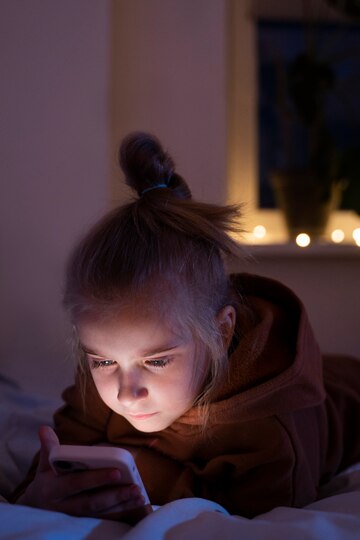Blue light from phones, TVs, tablets and computer has long been said to negatively impact our sleep Late-night TikTok watchers can breathe a sigh of relief, as a new study has claimed that the light emitted from smartphones does not have a significant effect on sleep quality. hoping to get a quality night of sleep should avoid using devices such as phones and tablets, and watching TV before bed because of the blue light they produce. If we stand back and look at all of the factors that can be harmful to our sleep, screens are overrated,” said Michael Gradisar, a clinical psychologist who co-wrote the paper Blue light has been said to suppress melatonin, which is the light-reactive hormone that assists sleep and a human’s circadian rhythm, or internal 24-hour clock. There’s no evidence from 11 studies conducted across the world that screen light in the hour before bed makes it harder to fall asleep. most crucial factor that affects a person’s sleep is the time they finally nod off. This may suggest that it is a person’s distraction by the device, delaying their slumber, rather than the device itself that impacts sleep. that screen blue light does not greatly affect a person’s sleep-wake cycle Avoiding screen time before bed can also help, as the things we do on our phones often delay sleep blue light’ – should be reduced in the evening, for example by dimming computer screens and using a night-shift mode.
Thank you for reading this post, don't forget to subscribe!Looking At Phone Screen Before Bed Is Not As Harmful To Sleep As Believed Study Says



